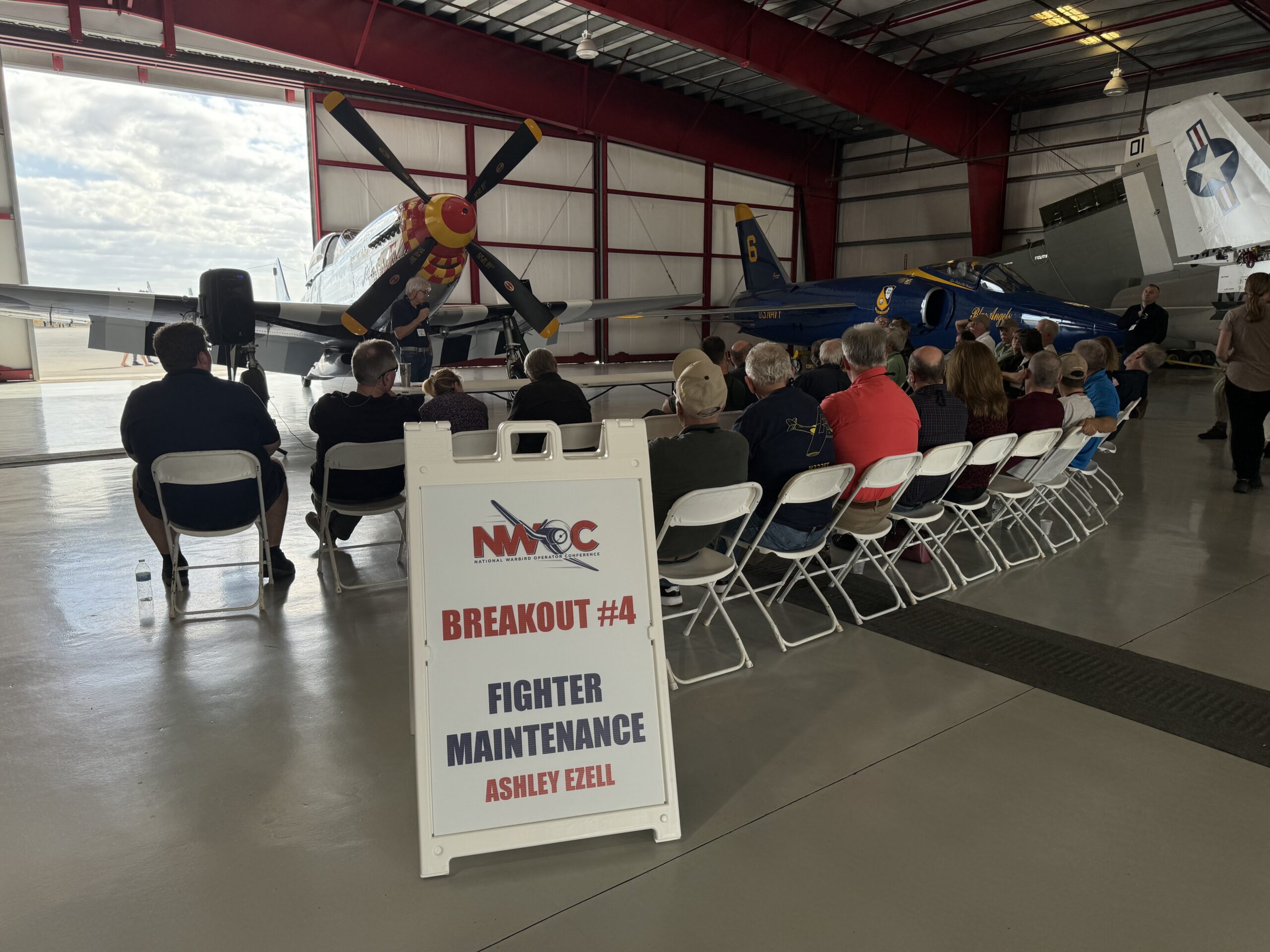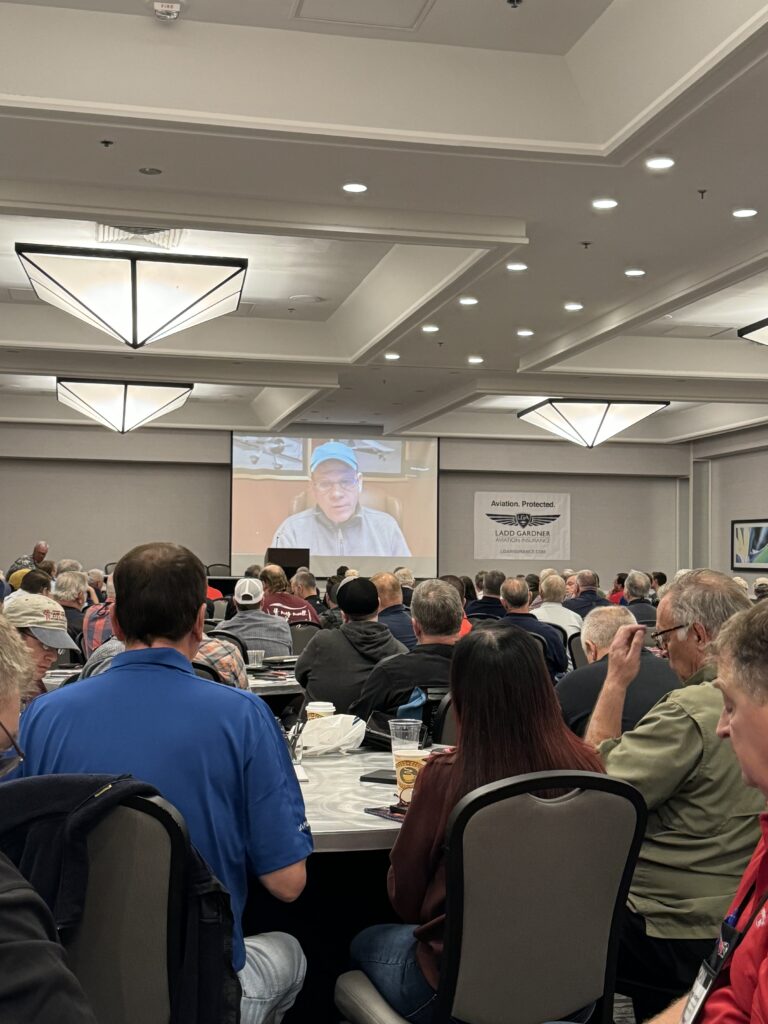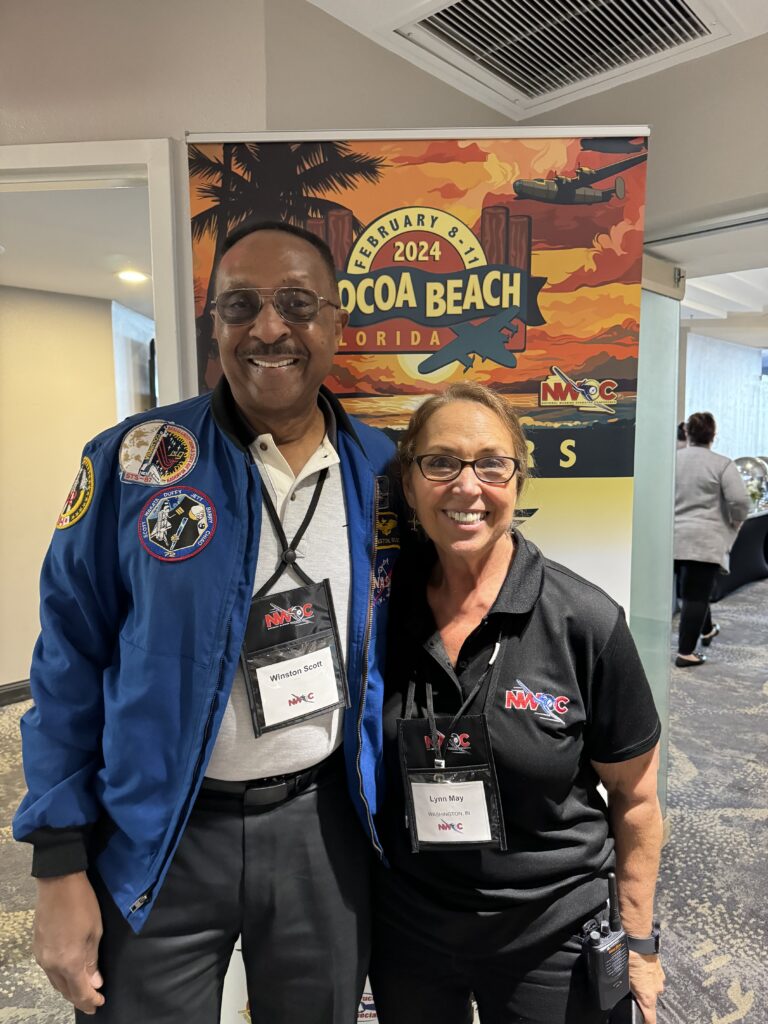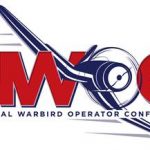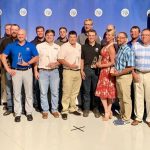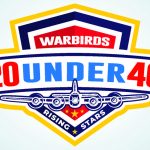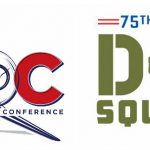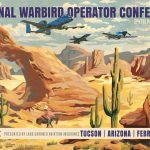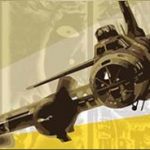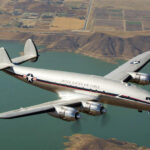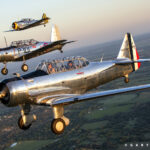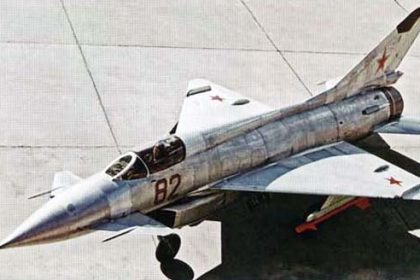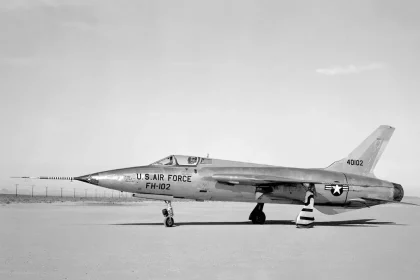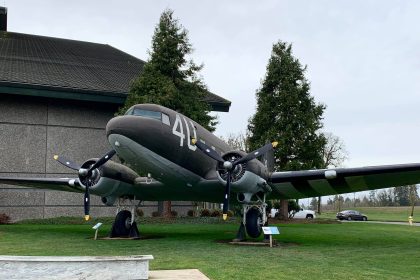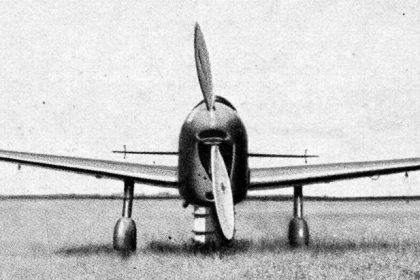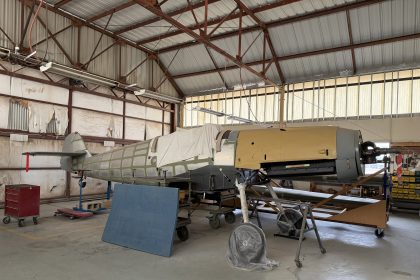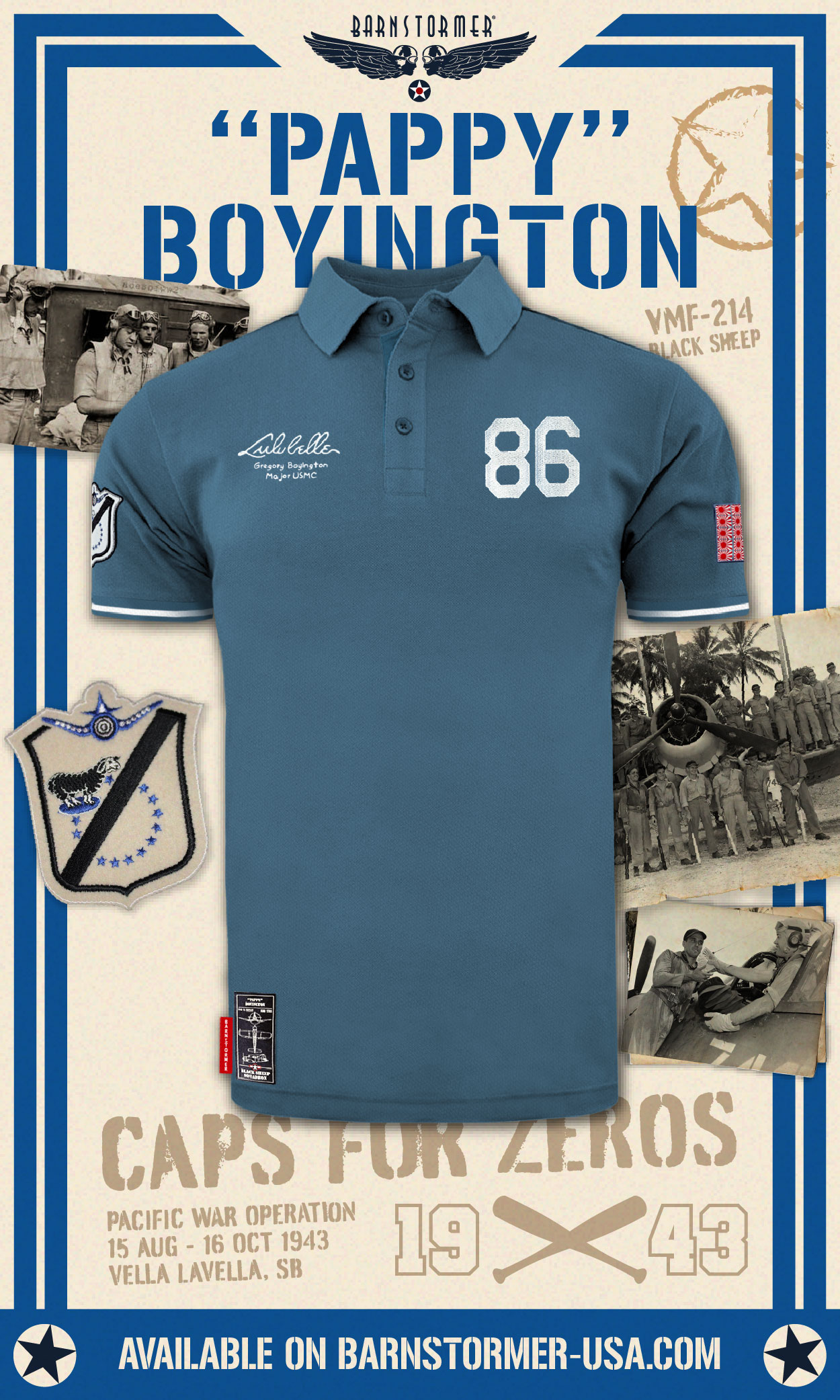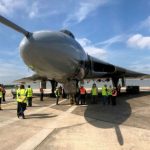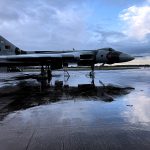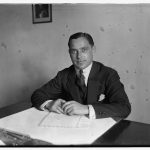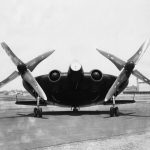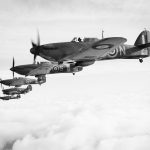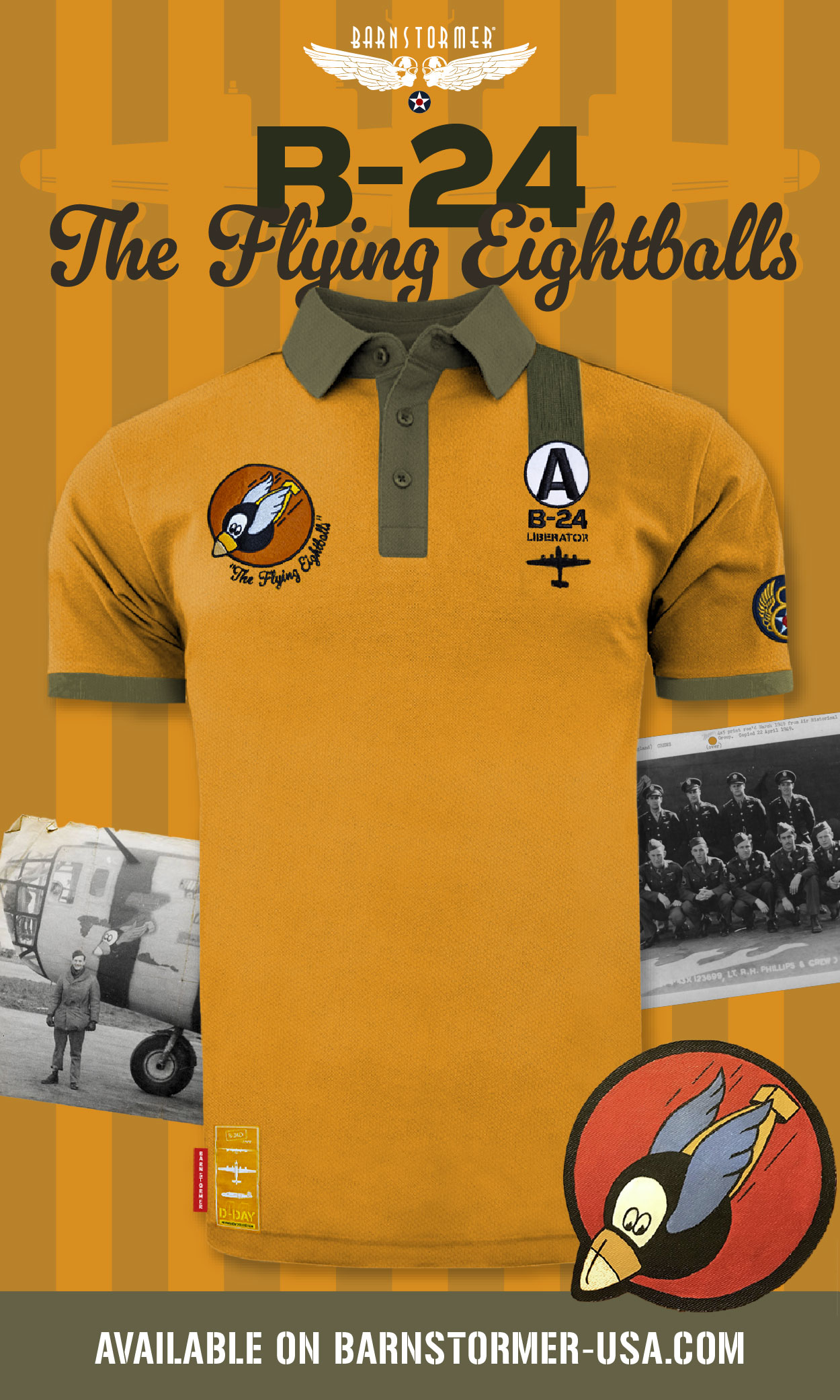By Luc Zipkin
Beginning on Thursday, February 8th, 2024, warbird industry insiders– a small but dedicated group –descended on the Hilton Cocoa Beach Oceanfront in Cocoa Beach, Florida. Pilots, mechanics, museum representatives, aircraft owners, insurance companies, parts suppliers, training providers, engine overhaul and restoration shops, and more gather every year for NWOC, the National Warbird Operator Conference. This year’s conference opened with a welcome reception at the Hilton on Thursday night, before presenters and attendees got down to business the following day.
On Friday, the Conference opened with breakfast at the Hilton, followed by welcome and opening remarks from NWOC Board Member Rick Siegfried and master of ceremonies and airshow announcer Matt Jolley. The pair did an admirable job of maintaining order over a characteristically unruly bunch, many of whom are old friends.
Shortly thereafter, Rep. Sam Graves (R-MO), currently chair of the House Transportation Committee and a warbird pilot, made a brief appearance over Zoom to update attendees on his work to advocate for warbirds, and general aviation more broadly, on Capitol Hill. Government affairs updates, from Rep. Graves, EAA’s Sean Elliott, and, on Saturday, AOPA’s Mike Ginter, centered on the forthcoming FAA reauthorization bill, as well as efforts to find an unleaded alternative to 100LL leaded avgas. Though the roll-out and mass production of unleaded aviation gasoline is still in its infancy, the good news for warbird operators is that unleaded alternatives are appropriate for a large majority of engines, including many radial engines used in warbirds. There are currently no proposals for large-scale bans on 100LL, and industry stakeholders are working hard to ensure that local efforts to ban leaded gasoline, which remains critical for the continued operation of historic aircraft until an unleaded alternative can be found, can be dissuaded if possible, and fought and defeated if necessary. Though many smaller engines have well-established unleaded fuel capability, longer-term detonation testing will be required to ensure that unleaded fuels are safe for larger radial engines and liquid-cooled V-12 engines. Larry Kelley of the Delaware Aviation Museum pointed out to the group that the military set limits on power settings that allowed the use of lower-octane fuels, a table of NWOC will be providing to attendees soon.
Separate from the avgas issue is a proposal in the FAA reauthorization bill to require certifications similar to FAA Part 135, which is held by small airlines, from warbird operators that are currently authorized to carry passengers for hire. This proposal, which industry advocates worked tirelessly to remove from the House of Representatives version of the bill, remains in the Senate version; hopefully, it will be removed in a conference committee after the bill passes; this onerous and unnecessary requirement, advocated by legislators who misunderstand the root causes of certain safety issues in the industry, would be a major blow to every organization currently funding their preservation of historic aircraft in part through paid warbird rides.
After the Friday government affairs update, Dr. Susan Northrup, the Federal Air Surgeon, and a warbird pilot, delivered an update on medical certification for pilots. The major themes in her presentation centered on expansions to BasicMed, an FAA program for easing medical requirements for light aircraft, as well as special-issuance medical certificates and warbird accidents likely resulting from health-related pilot incapacitation. Though many of the details of BasicMed expansion will be fleshed out through the long-awaited MOSAIC (Modernization of Special Airworthiness Certification) process, Dr. Northrup emphasized her office’s goal of finding a path to certification for almost all pilots, while retaining a high physical and mental health standard that will ensure continued safety.
Later that morning, representatives from Ladd Gardner Aviation Insurance, U.S. Specialty Insurance Company, and Strong Parachutes each delivered updates and comments on their respective industries, before lunch and a speech from Capt. Winston E. Scott, USN (Ret.), who served as a mission specialist on two Space Shuttle missions in 1996 and 1997. Capt. Scott’s inspiring and informal talk ranged from his upbringing in segregated Florida schools to using a NASA Northrop T-38 Talon as a personal commuter aircraft from Houston to Cape Canaveral and looking back on our ‘pale blue dot’ on three spacewalks, one of which was almost 8 hours long. On Friday afternoon, breakout sessions on a variety of type flight operations were hosted at the Hilton; Thom Richard, supported by Paul Redlich, led T-6 Flight Operation, with Mick Thorstenson heading up T-28 Flight Operations, Sean Elliott on LHFE (Living History Flight Experience) Flight Operations, and Marco Rusconi on Fighter Flight Operations. Though I could only attend one breakout session, Thom and Paul’s Texan talk was exceptionally organized and delivered to a packed room. In the evening, attendees decamped to the nearby Kennedy Space Center at Cape Canaveral, where they were treated to an “Evening under Space Shuttle Atlantis,” a wonderful dinner with an inspiring speech by Matt Jolley. Matt shared some great stories about his career as an airshow announcer and warbird advocate at WarbirdRadio.com, including a fantastic anecdote about crashing a rental car at Bob Hoover’s house months before the legendary pilot’s death.
The next day, NWOC picked back up in full force, with a packed morning of continued talks, panels, and industry updates. The engine panel, staffed by Mike Nixon of Vintage Radials, Jose Flores of Vintage V-12s, and Cory Miller of Strix Aero, answered specific questions from the audience about warbird engine operation, maintenance, and overhauls, and more broadly emphasized their continued ability to find parts for overhauls for decades to come. Cory Miller, who just recently inaugurated Strix Aero’s Allison V-1710 overhaul business, emphasized the use of modernized engine data technologies to ensure greater flight safety. Later on Saturday morning, an FAA panel with Dave Menzimer, Tom Leahy, and EAA’s Sean Elliott spoke more on the government affairs front, as did Mike Ginter of AOPA in a solo update on his office’s lobbying work. John Lohmar and Rick Siegfried led this year’s safety update, with detailed analysis of the six warbird accidents in 2023 and resulting fatalities, and emphasized the leading role of low-level maneuvering and losses of control in these tragic events. At lunch, Chris Henry from the EAA Museum delivered an excellent talk on “The Final Mission: One B-17 and the Lives It Touches,” which truly put into perspective the historical and personal importance of the preservation and operation work carried out by the warbird industry.
On Saturday afternoon, buses took attendees from the Hilton in Cocoa Beach to the Valiant Air Command Museum in Titusville, which hosted four maintenance breakout sessions. Paul Redlich of Stars and Bars Aircraft hosted the T-6 maintenance session, with Jamie Trudeau leading the T-28s, Tom Reilly leading the Bomber/Transport group with his B-25 Killer B, and Ashley Ezell speaking on Fighter maintenance with North American P-51D Ain’t Misbehavin’. Following the maintenance sessions, many attendees reconvened at the Hilton for the NWOC after-party and informal gatherings with old warbird friends. Throughout the event, the dedication of our niche industry to the continued commemoration of these important and historic stories was readily apparent to this first-time attendee. NWOC organizers have not yet made any announcements regarding the Conference’s location for 2025, but it’s clear based on this year’s event that all of us in the industry have a great deal to look forward to next February.
Acknowledgments
NWOC is organized by a core set of volunteers who make this specialty event happen with the help of devoted attendees and sponsors. The volunteers are led by NWOC Event Directors Lynn May and Mike Jones, as well as NWOC Board Members Rick Siegfried, Hartley Postlethwaite, and Bill Gorin, who are supplemented by Darcy Kaapke and Mark Clark of Courtesy Aircraft Sales, Ethan Malavolti of Malavolti Aviation, Kristin Schaick of EAA Warbirds of America, Tim Savage, and Abel Nasser-Bernal. This year, Ladd Gardner Aviation Insurance, Airmotive Specialties, the North American Trainer Association, U.S. Specialty Insurance Company, Rezich & Rezich Aviation Consulting, Trojan Phlyers, Southern Star Aviation, WarbirdRadio.com, Lost Coast Warbirds, the Commemorative Air Force, EAA Warbirds of America, Courtesy Aircraft Sales, Code 1 Aviation, FlightHelmet.com, Lift Aviation, S & T Aircraft Accessories, Platinum Fighter Sales, Strix Aero, Concorde Batteries, Trojan Aviation, Aircraft Spruce & Specialty Co., Warbird Adventures, and Dan Newlin Injury Attorneys each helped to sponsor the event.







